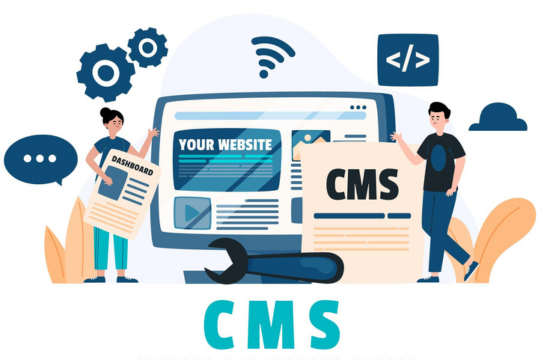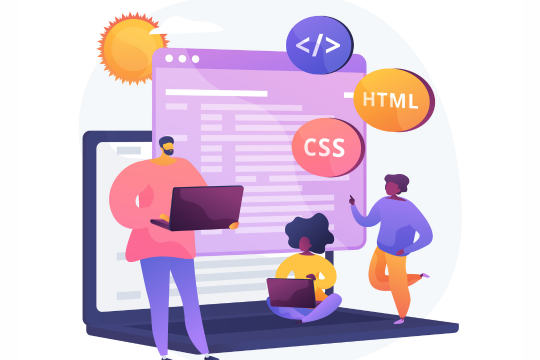What is WordPress Web Development?
WordPress web developmentis the process of designing, creating, and hosting websites on the WordPress content management system (CMS). WordPress is an open-source system that has become the default choice for developing anything from a basic blog to an advanced e-commerce site. It hosts more than 40% of all sites on the internet due to its versatility, simplicity, and huge developer and user base. This platform is perfect for users who wish to design a website without needing extensive coding experience. In this blog, we will discuss what WordPress web developmentis, the advantages of WordPress, and how you can begin developing your own WordPress website.
Table of contents [Show]
Why Choose WordPress for Web Development?
WordPress enjoys a robust reputation as an easy-to-use and highly customizable CMS. As an entrepreneur, small business owner, or even a web development expert, WordPress provides many benefits, making it a desirable platform for building websites.
Open Source and Free to Use:
One of the most significant benefits of WordPress is that it is an open-source platform, which means it is free to use. You can download, install, and customize WordPress without having to pay any licensing charges, and therefore, it is a great value for individuals and companies that want to create an online presence.
User-Friendly Interface:
Even if you're not very technical, WordPress is simple to use to create and develop a website. The dashboard is user-friendly, with a simple interface to add content, shift between themes, install plugins, and control your site. The visual editor, Gutenberg, also makes it simple to create content through its drag-and-drop capabilities, so you can build web pages without requiring any coding knowledge.
Extensive Plugin Ecosystem:
WordPress boasts a vast collection of free and paid plugins that enable you to implement additional functionality on your site. SEO optimization, including contact forms, security features, or e-commerce functionality, can be added via plugins. Well-known plugins like Yoast SEO, WooCommerce, and WPForms make your site personal to your particular requirements.
SEO-Friendly Features:
WordPress has a vast array of SEO-friendly features that enhance the visibility of your website on search engines. It organically creates clean and readable URL structures, and with plugins such as Yoast SEO, you can easily optimize your pages, blog posts, and images to enhance search engine rankings. WordPress also provides easy integration with Google Analytics for monitoring site performance.
Scalability and Flexibility:
WordPress is very scalable and can adapt with your business. Whether you're beginning with a small blog or require a complex e-commerce site, WordPress can fulfill your requirements. You can add more pages, features, and tools as your business expands, making your website effective in the long term.
Key Features of WordPress Web Development:
Knowing the fundamental aspects of WordPress web developmentis vital when you're creating a website. WordPress has a mix of flexibility, simplicity, and rich options for customization, which makes it the best option for most.
Themes:
Themes determine the layout and design of your WordPress website. WordPress has thousands of themes, both premium and free, that can be tailored to fit your brand. Themes are usually created with specific industries in mind, so finding a theme that fits your requirements is a breeze. You can customize themes with the WordPress Customizer or develop a child theme for deeper customizations.
Plugins:
Plugins are a must-have in WordPress that help expand its capabilities. They enable you to include features like contact forms, e-commerce features, social media connectivity, and many more. There are more than 50,000 plugins listed in the WordPress plugin directory, which presents a wide range of features to cater to every website's requirements. A few of the most well-known plugins are WooCommerce, Elementor, and Contact Form 7.
Widgets are small blocks of content that can be inserted into locations like the sidebar, footer, or header. Popular widgets are recent posts, calendars, search boxes, and social media streams. WordPress has a number of default widgets, and there are plugins through which additional widgets can be installed.
Custom Post Types:
WordPress lets you add custom post types, which are used for organizing and showing particular kinds of content. Though "posts" normally serve for blog posts, custom post types enable you to make specialized content such as portfolios, testimonials, or events. This feature provides you with more control of how the content on your website is organized.
Media Management:
WordPress makes the handling of media files, such as images, video, audio, and documents easy. The media library, which comes with WordPress, enables you to upload, categorize, and modify media files effortlessly. You may include alt text, captions, and descriptions for images, which also increases SEO.

How Does WordPress Web Development Work?
Learning about how WordPress web developmentis done is important if you wish to design a site that runs efficiently and accomplishes what you are looking for. WordPress is simple to install and configure, yet there are several processes involved in the creation of a site.
WordPress Core:
WordPress core is the base of the CMS that entails all the fundamental features and functionality that host a WordPress website. The core is regularly updated by the WordPress team to enhance security, patch bugs, and add new features. The WordPress core can be updated directly from the dashboard by users, keeping the site current with all the latest enhancements.
Web Hosting:
To host a WordPress site, you must select a hosting provider. Web hosting is where files of your website are stored and made available to users. Most hosting providers offer specialized WordPress hosting services with options like automatic updates, better security, and one-click installation. Some of the well-known WordPress hosting providers are Bluehost, SiteGround, and WP Engine.
WordPress Installation:
Once you have chosen your host, you can easily install WordPress using their one-click install feature. Once installed, you can go into your WordPress dashboard and begin creating your website by selecting a theme, adding plugins, and entering content. Some hosts also provide managed WordPress hosting, which will handle the technical side of having a website for you.

Customization and Development:
Once WordPress is installed, you can start modifying your site to suit your particular requirements. You can modify the look and feel of the site using the WordPress Customizer or create custom themes with HTML, CSS, and PHP. You can also add custom functionality through plugins or by coding custom modules to hook into third-party services or databases.
Maintenance and Updates:
After your site goes live, it is essential to update WordPress, themes, and plugins regularly so that your site is secure and works smoothly. Routine backups and monitoring the site's performance should also be done periodically. Maintenance and managing your WordPress site is a continuous process that ensures your site stays secure, fast, and reliable.
Best Practices for WordPress Web Development
To create a successful WordPress site, one needs to adhere to best practices that guarantee security, performance, and usability.
- Select a Reputable Hosting Company
Your hosting company significantly affects the performance of your WordPress site. Select a hosting service with excellent performance, excellent uptime, and good customer support. - Update WordPress and Plugins
In order to keep your website safe and performant, always keep your WordPress core, themes, and plugins updated. - Optimize Website Speed
Website speed is vital for search rankings and user experience. Utilize caching plugins, optimize images, and activate browser caching. - Install Robust Security Measures
To further secure your site, use secure passwords, turn on two-factor authentication, install security plugins such as Wordfence or Sucuri, and back up your site regularly. - Use SEO Best Practices
Plug-ins such as Yoast SEO or Rank Math should be employed to further optimize the content.
Final Thoughts:
WordPress web developmentis a versatile and flexible tool for building websites of any type, from simple blogs to sophisticated e-commerce websites. With its easy-to-use interface, large plugin community, and search engine-friendly capabilities, WordPress is an ideal option for novice and professional developers alike.
By understanding the key features, best practices, and development process, you can maximize the potential of WordPress to build a website that meets your specific needs and goals. With its vast community, regular updates, and scalability, WordPress will continue to be a dominant force in the world of web development.
